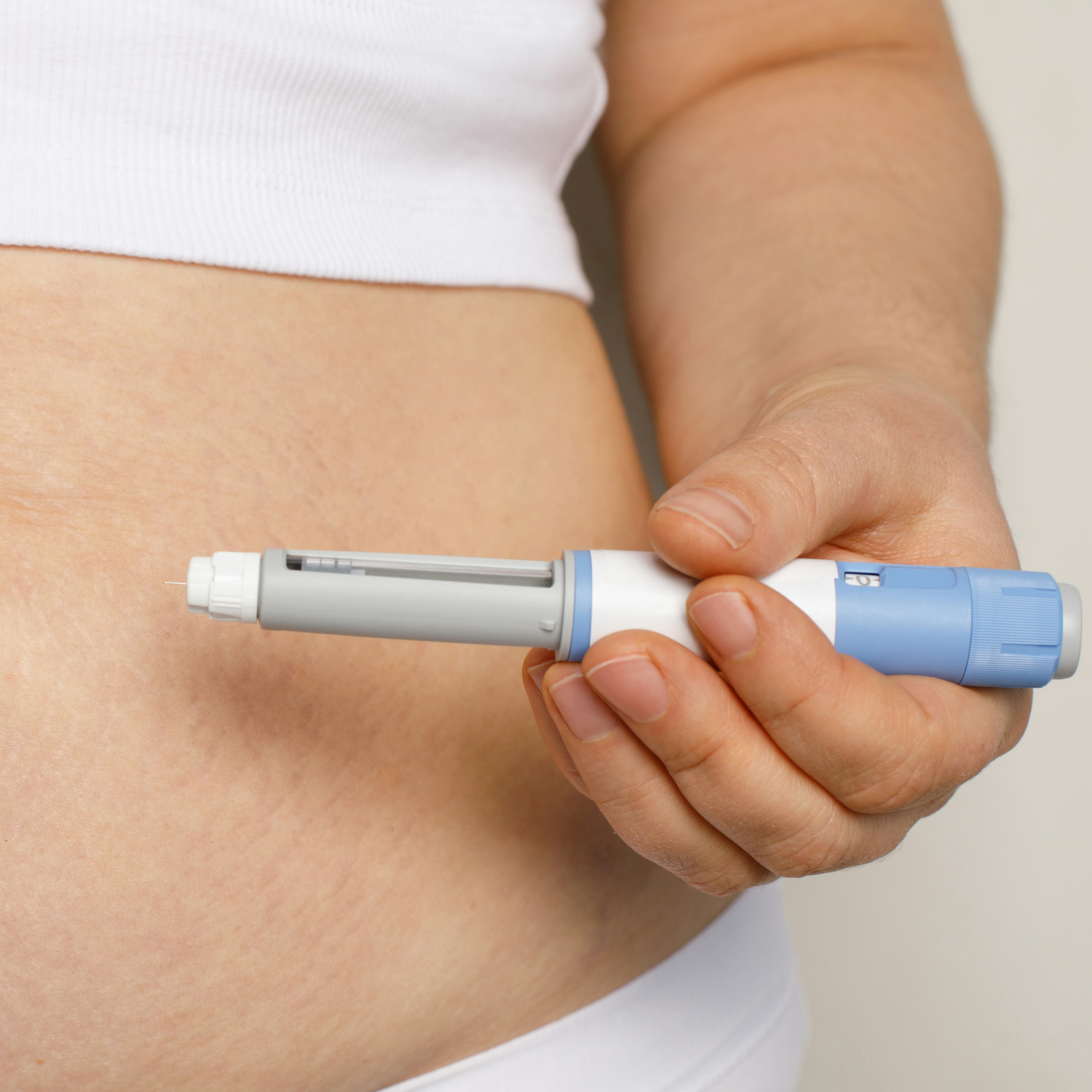Key Takeaways
GLP-1 injections like Wegovy® and Zepbound® help control appetite and support lasting weight loss.
Best results come when paired with healthy eating, exercise, and medical supervision.
Popular options include Wegovy® (weekly), Zepbound® (weekly), and Saxenda® (daily).
You may qualify if your BMI is 30 or higher—or 27 with a related health condition like diabetes or high blood pressure.
Talk with your healthcare provider to see which option is safe and right for you.
Weight loss injections have quickly become one of the most popular options for individuals seeking to achieve lasting results. While lifestyle changes like healthy eating and exercise remain essential, many patients are turning to medical treatments for added support. GLP-1 injectable medications, such as semaglutide (Wegovy®) and tirzepatide (Zepbound®), are showing powerful results in weight management. But which injection is truly the best, and how do you know if it’s the right choice for you?
What Are Weight Loss Injections?
Weight loss injections are medications delivered by a small needle under the skin, usually in the stomach, thigh, or arm. Unlike supplements or diet pills, these treatments are FDA-approved and designed to work as part of a supervised medical weight loss program.
The most widely used weight loss injections are GLP-1 receptor agonists, a class of drugs originally developed for diabetes. They help regulate appetite, improve insulin sensitivity, and slow digestion so patients feel fuller longer.
How Do Weight Loss Injections Work?
Medical weight loss medications mimic natural hormones that influence hunger and blood sugar regulation. By doing so, they:
- Lower appetite and cravings
- Slow how quickly food leaves the stomach
- Improve insulin resistance.
The results are often more sustainable than crash diets or over-the-counter supplements. Patients not only lose weight but also lower their risk of serious conditions like type 2 diabetes, high blood pressure, and heart disease. It’s important to remember, though, that these injections work best alongside healthy eating and physical activity.
Best Weight Loss Injections
1. Semaglutide (Wegovy®)
FDA-approved for:
- Chronic weight management
- Treatment of Metabolic dysfunction-Associated Steatohepatitis (MASH) — approved August 2025
FDA-indicated for:
- Reducing risk of heart attack, stroke, and cardiovascular death in adults with established cardiovascular disease who are obese or overweight
- Weekly injection
- Clinical trials show an average weight loss of 12–15% of body weight.
2. Tirzepatide (Zepbound®)
- FDA-indicated for obesity and sleep apnea
- A dual GLP-1/GIP receptor agonist.
- May lead to even greater results, often leading to 20% body weight reduction.
- Weekly injection.
3. Liraglutide (Saxenda®)
- Daily injection.
- Effective but less convenient compared with newer, weekly options.
Other injectable medications are being studied, but these three remain the most widely prescribed and proven choices today.
Weight Loss Injections Comparison
There is no single weight loss injection that is best for everyone. Instead, the right option depends on your health, lifestyle, and budget. Here’s how the leading medications compare:
Tirzepatide (Zepbound) and Liraglutide (Saxenda) are FDA-approved for chronic weight management.
Other considerations include side effects (such as nausea or digestive upset) and cost. Insurance coverage varies widely, so it’s best to confirm eligibility before you start.
Who Is a Good Candidate for Weight Loss Injections?
These treatments are FDA-indicated for:
- Adults with a BMI of 30 or higher.
- Adults with a BMI of 27 or higher who also have a weight-related health condition, like diabetes, hyperlipidemia, high blood pressure, or PCOS.
- Patients who have struggled with weight loss through diet and exercise alone.
It’s important to note that weight loss injections are not suitable for everyone. These medications should be avoided by people who are pregnant or breastfeeding, those with a history of pancreatitis, and anyone with a personal or family history of medullary thyroid cancer or MEN2 syndrome. A medical provider will review your history and help determine if injections are safe for you.
How to Access Weight Loss Injections Safely
Because these medications have become so popular, many online sellers advertise them without prescriptions. This can be risky. The safest way to start treatment is by visiting a medical weight loss clinic or your primary care provider, who can prescribe FDA-approved versions and monitor your progress.
What to Expect During Your Appointment
If you’re a candidate, your provider will:
- Review your health history and run lab tests
- Create a personalized treatment plan
- Teach you how to give yourself the injections at home
- Schedule follow-up visits to monitor progress and side effects
You’ll also receive guidance on nutrition and exercise, since lifestyle changes remain an important part of long-term results.
Get Weight Loss Injections in Houston at CLS Health
Weight loss injections are not one-size-fits-all, but for many patients, they provide a safe and reliable way to achieve meaningful, lasting results. The best injection depends on your health needs, weight loss goals, and insurance coverage.
If you’re ready to explore this option, the first step is talking with a qualified provider who can walk you through the risks, benefits, and long-term expectations. At CLS Health, our team offers medically supervised weight loss programs tailored to each patient.
Schedule a consultation today to find out if weight loss injections are right for you.
FAQs About Weight Loss Injections
Both are highly effective, but tirzepatide has shown slightly greater average weight loss in clinical studies. A weight loss doctor will help decide which option fits best with your health profile and goals.
Most patients stay on treatment for several months or longer, depending on how well they respond and whether weight loss is maintained. However, stopping too early may lead to regaining weight, so providers usually recommend ongoing use alongside lifestyle changes.
They do lead to weight loss on their own, but results are much better when paired with healthy eating and physical activity. It is best to combine medication with lifestyle changes if your goal is to lose excess weight and keep it off.
Yes, when prescribed by a healthcare professional and monitored closely. Like any medication, they may cause side effects such as nausea, diarrhea, or constipation, but these often improve over time.
Out-of-pocket costs vary but typically average around $499 per month for both Wegovy® and Zepbound®. Many clinics offer financing options, and some insurance plans cover part of the cost if the criteria are met.





